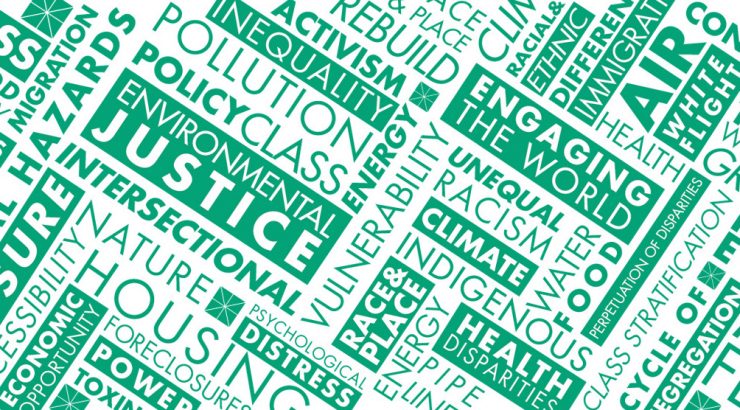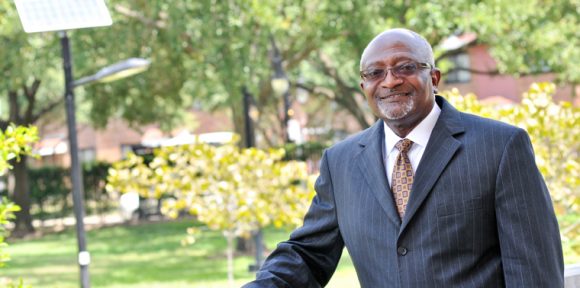
Engaging the World 21-22: Leading the Conversation on Environmental Justice
July 6, 2021

Dr. Robert Bullard is the keynote speaker for this year’s Engaging the World: Leading the Conversation on Environmental Justice.
Wilkinson College is committed to leading the conversation on campus and in our community on issues of humanity, unity, and justice, by undertaking semester-long examinations of key societal issues. These interdisciplinary, campus-wide conversations promote social tolerance and awareness, respect, peace, and kindness, through thoughtful dialogue and mindful reflection. Fall of 2020 saw the launch of the Engaging the World (ETW) initiative with the hugely successful Engaging the World: Leading the Conversation on the Significance of Race. Now Wilkinson is excited to announce the theme of this year’s series, Engaging the World: Leading the Conversation on Environmental Justice. The new series will begin with a discussion of the film, A Fierce Green Fire (2012), on Friday, August 20th, and will include a virtual keynote address by Dr. Robert Bullard (Texas Southern University), widely considered the “father of environmental justice” on September 21st.
Like last year, ETW will include film screenings, guest lectures, book clubs, arts exhibits, podcasts, and is tied to the First-Year Focus (FFC) courses required of all incoming Wilkinson College first-year students. This year’s ETW will also include a new partnership with Planet Forward, a project of the George Washington University School of Media and Public Affairs, that supports environmental storytelling by college students.
“Environmental justice can be complex, calling on knowledge from the sciences, the social sciences, the humanities and even the arts,” said Professor of English Dr. Brian Glaser, who is teaching the “Tijuana & the Dream of Environmental Justice” FFC. “This interdisciplinary project, Engaging the World, is really a reason for hope.”
Environmental justice is where environmentalism and social justice intersect. It explores why and how environmental toxicity and disasters, such as dirty air and water, disproportionately harm already disadvantaged communities, how marginalized peoples are denied environmental benefits, such as access to parks or land, and it challenges environmentalists to consider race, class, ethnicity, and gender when formulating solutions to 21st century environmental challenges.
“I hope this year’s ETW series on Environmental Justice draws attention to the substantial racial/ ethnic and socioeconomic disparities in exposure to environmental hazards that go on to affect the health and mortality of minority and low-income populations,” said Dr. Ashley Kranjac, assistant professor in the Department of Sociology and co-director of this year’s ETW program. According to Kranjac, who is teaching the “Health Disparities” FFC, some environmental hazards that affect our local communities include hazardous waste sites, active transportation, climate disruption, environmental health, food deserts, access to green space, and energy justice.
“I hope that students are better able to understand the intricacies of social inequalities by focusing on farm workers and the environment in California,” said Dr. Ruben Espinoza, director of the LatinX and Latin American Studies interdisciplinary minor, who is teaching the “Environmental Justice in California’s Farm Working Communities” FFC. “The state will still be in fire season when the semester begins, yet our food supply will remain uninterrupted. Poor air quality might lead to class cancellations and warnings to remain indoors, but that will not be an option for farm workers. I will be teaching from inside the classroom, while people like my parents will be laboring in the fields. I want students to improve their critical thinking skills by focusing on the factors that make these inequalities possible.”
Prepare yourself to join the conversation on environmental justice by marking your calendars with the current list of Engaging the World events, or take a second to watch or listen to an event recording or podcast from last year’s series.